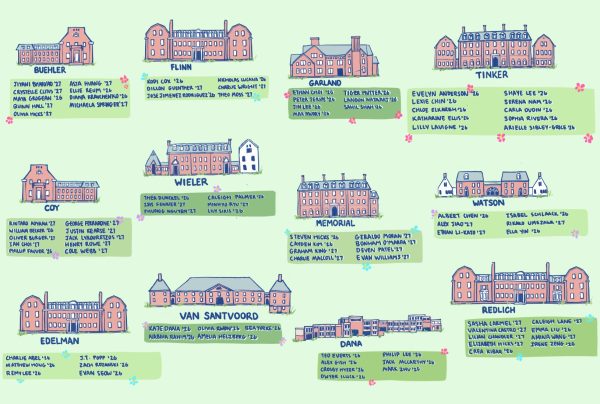Why Travel With Hotchkiss?
You are scrolling through your inbox with emails about lost items, upcoming schedule changes, and, oh! you see an email about an opportunity to take a trip abroad. Why should you choose to take advantage of school trips? The travel programs all connect to the school’s curriculum and co-curriculum. They give students the chance to apply what they learn in class to the wider world, where they are able to immerse themselves in a foreign culture alongside interested peers.
A teacher interested in bringing students to explore a topic they’re passionate about or a coach who thinks it would be beneficial to experience another culture can initiate a program. Mr. David Thompson, director of international programs, asks for proposals for new programs at the beginning of each school year. A committee then reads over the proposals and discusses logistics, such as cost, safety, and how well each program relates to the curriculum or co-curriculum. Faculty members are always present on the trips, and they are typically accompanied by additional adults. With an annual budget of $100,000, The Office of International Programs oversees 14 funds for global understanding dedicated to helping up to 40 students attend the programs in which they express interest.
Aside from the marine biology trip in Massachusetts and other trips that require a specific skill background, trips are open to all grades. Mr. Thompson encourages interested students to find a program they would like to take part in and apply, assuming the timing is convenient. Some of the most popular experiences include the Florence arts program (music, writing, visual art) and the Quebec immersion trip, which matches each student in 300-level French with a host family. Other popular trips include travel to Iceland and Cuba. Mr. Thompson said, “If it is somewhere people and their families wouldn’t usually [travel] to, people tend to show large interest.”
Since he joined the office in 2006, Mr. Thompson has brought more structure to the travel programs, resulting in more participation. In recent years, more than half of the school’s graduates have participated in various exchanges, summer programs, or trips during breaks. Mr. Thompson said, “It has really become a landscape of the school.”
In the future, Mr. Thompson would like to see the addition of more domestic trips, since the travel would be easier and more convenient. By traveling outside New England, students would gain exposure to the United States’ diverse people and locales. He said, “Travel is something that is meaningful to the students. They can identify what they hope to take from the experience, [and] they can also identify what they hope to bring to the group they are traveling with. ”




